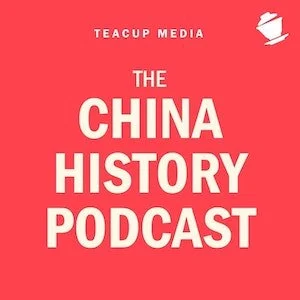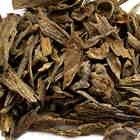Ep. 275 | Henan Province (Part 3)
We're going to finish off this survey of Henan from Neolithic times to the 20th century. In this episode, you'll get a closer look at Zhengzhou and a few other noteworthy slivers of Henan history. We'll close off with the hard times that hit Henan in 1887, 1938, 1942, 1959, and 1975.
If you never appreciated Henan's place in Chinese history I hope this three-part series was able to offer you a taste.
Listen On Your Favorite Podcast Player
Terms in Episode
| Pinyin/Term | Chinese | English/Meaning |
|---|---|---|
| Zhōu Dynasty | 周朝 | The Zhou Dynasty that ran 1046 to 256 BCE, the last of China's Three Bronze Age dynasties |
| Hénán | 河南 | Province in central China |
| Zhèngzhōu | 郑州 | Capital of Henan Province |
| Duke of Zhèng | 郑武公 | Ruler of Zheng from 770 to 744 BCE |
| Zǐchǎn | 子产 | grandson of one of the Dukes of Zhèng. He served as prime minister of Zhèng to a couple of the dukes. We remember Zǐchǎn for his law code of 543 BCE. This was the first law code in China’s history |
| Shēn Bùhài | 申不害 | Great Legalist Philospoher and high up government official. Lived from 400 to 337 BCE |
| Xīnxiāng | 新乡 | City in Henan located midway between Zhengzhou and Anyang |
| Píngyuán | 平原 | Short-lived province during rhe eary years of rhe PRC, contained a little of Henan and a little of Shandong |
| Battle of Mùyě | 牧野之战 | The descive battle that saw the defeat of Shang King Zhou 纣王 at the hands of the forces led by Zhou King Wu 周武王 |
| Shāng King Zhòu | 纣王 | The role model throughout imperial China for a bad king who desevred what he got in the end. He ruled Shang from 1075-1046 BCE. Also known as Zhou Xin 纣辛 |
| King Wǔ | 周武王 | Also known by his personal name Jī Fā 姬发. Son of King Wen, Known mostly as the Zhou King Wǔ |
| Zhèngzhōu Shāngchéng | 郑州商城 | The Zhengzhou Shāng City from around 3,600 years ago. This site predated the ruins of Yīn in Ānyáng. |
| Hàojīng | 镐京 | Capital of the Western Zhou, located near present-day Xian |
| Duke Huān | 郑桓公 | Founder of the state of Zheng during the Zhou Dynasty. Ruled 806-771 BCE |
| Xīnzhèng | 新郑 | Ancient capital of Zheng State and alleged birthplace of The Yellow Emperor |
| Dēngfēng | 登封 | Site of the first Xia Dynasty capital, a city just south of Zhengzhou |
| Xíngyáng | 荥阳 | Located in the western part of Zhengzhou |
| Mount Sōng | 嵩山 | Sacred mountain in Henan not too far from Luoyang. Shaolin Temple is located there |
| Shàolin Temple | 少林寺 | The famous Shaolin Temple, where kung fu was developed and where the Chan Buddhist sect began |
| Chán | 禅 | Chan Buddhism, also known as Zen in Japan |
| Zhōngyuè Temple | 中岳庙 | A famous Daoist Temple located in Dengfeng |
| Sōngyáng Academy | 嵩阳书院 | One of the oldest Confucian temples and place of higher learning |
| Observatory at Gàochéng | 告成 | The Guānxīngtái 登封观星台 lcocated in Dengfeng |
| Duke of Zhou | 周公 | Brother of Zhou King Wu and Regent to King Wu's son, King Cheng |
| Cháng’é | 嫦娥 | The Moon Goddess in Chinese mythology |
| State of Hán | 韩国 | Zhou Era state that lasted 403 to 230 BCE |
| Léizǔ | 嫘祖 | Wife of the Yellow Emperor and legendary inventor of silk |
| Xīlíngshì | 西陵氏 | Another name for Empress Leizu |
| Xiàngqí | 象棋 | The game of Chinese Chess, or Go as it is known in Japan |
| Qín Shǐhuáng | 秦始皇 | First Emperor of China. King of Qin from 247-221 BCE and Qin Emperor 221 to 210 BCE |
| Liú Bāng | 刘邦 | Founder of the Han Dynasty who was also known as Han Gaozu. He reigned 202-195 BCE |
| Xiàng Yǔ | 项羽 | Rebel who helped bring down the Qin Dynasty. Later he ruled as the "Hegemon-King of Western Chu" (西楚霸王). He was defeated by Liu Bang at Gaixia. |
| Hóng Gōu | 鸿沟 | The Hóng Canal in Henan |
| Chǔ Hé Hàn Jiè | 楚河汉界 | The River That Divides Chu and Han, a figurative line that divides rival territories |
| Xiàngqí Wénhuà zhī Xiāng | 象棋文化之乡 | The Hometown of Chinese Chess Culture |
| Lǐ Shāngyǐn | 李商隐 | One of the great Tang poets who lived 813-858 |
| Wēn County | 温县 | A county located north of Zhengzhou on the other side of the Yellow River |
| Chénjiāgōu | 陈家沟 | hometown of Chén Wángtíng 陈王廷 who lived from 1580 to 1660…During his lifetime in the late Ming Dynasty tradition says that in Chénjiāgōu he developed the Chén Style of Tàijíquán, one of the five major styles practiced all over the world |
| Zhāng Sānfēng | 张三丰 | A legendary Chinese Taoist who was said to have invented Taijiquan, and in so doing, allegedly achieved immortality |
| Yǐngchuān Commandery | 颍川郡 | one of the thirty-six setup in China by the Qín State prior to unification in 221 BCE |
| Northern Zhōu dynasty | 北周 | Northern Dynasty that ruled China from 557-581. They were followed by the Sui |
| Yáng Jiān | 杨坚 | Northern Zhou official who later went on to found the Sui Dynasty and rule as Sui Wendi |
| Suí Dynasty | 隋朝 | Dynasty that preceded the Tang and lasted 581 to 618 |
| Emperor Wén of Suí | 隋文帝 | Founder of the Sui Dynasty, also known as Yang Jian |
| Qīng Dynasty | 清朝 | Final dynasty in Chinese history, ran 1644 to 1911 |
| Lónghǎi | 龙海铁路 | Important east-west railway that ran from Lianyungang, Jiangsu to Lanzhou, Gansu Province |
| Pínghàn | 平汉铁路 | The Beiping-Hankou Railway, a key north-south railway |
| Féng Yùxiáng | 冯玉祥 | Chinese Warlord with a ton of nicknames. He lived 1882-1948 |
| Shāngqiū | 商丘 | City in eastern Henan |
| Shāndōng | 山东 | Coastal province in northern China |
| Ānhuī | 安徽 | Province west of Zhejiang and Jiangsu |
| Shénnóng | 神农 | Mythological Chinese Ruler also known as The Divine Farmer |
| Zhuānxū | 颛顼 | Mythological emepror from ancient pre-history |
| Qǐ | 启 | the second king of Xià….son of Yǔ the Great - 大禹 |
| King Tāng | 商汤 | Also known as Shang Tang 商汤, the founder of the Shang Dynasty |
| Shāngrén | 商人 | A business person |
| State of Sòng | 宋国 | Ancient state during the Zhou Dynasty who had its capital at Shangqiu |
| Lǔ | 鲁国 | Ancient state during the Zhou Dynasty located in Shandong |
| Sòng Dynasty | 宋朝 | Dynasty that ran 960-1279, based in Kaifeng first and starting from 1127, in Hangzhou |
| Kāifēng | 开封 | Prefecture-level city located in north-central Henan. |
| Nánjīng | 南京 | Means Southern Capital. The most famous Nanjing was the city in Jiangsu. There were other Nanjing's as well. |
| Southern Sòng Emperor Gāozǔ | 宋高祖 | First emperor opf the Southern Song. Reigned 1129-1162 |
| Hángzhōu | 杭州 | Capital of Zhejiang Province, site of the Southern Song capital |
| Nányáng | 南阳 | City in southwest Henan (also a prefecture) |
| Shǎnxī | 陕西 | Province in Northern China |
| Húběi | 湖北 | Province in central China |
| Wǎn | 宛 | The ancient name of Nányáng |
| Shēn State | 申国 | Ancient Zhou State located in and around Huaiyang County in Henan. They ended up getting annexed by Chu |
| Zhūgě Liàng | 诸葛亮 | 181-234, A major figure during the Three Kingdoms period. Renowned for his military strategy and leadership as chancellor and regent. A giant in Chinese culture and history. |
| Cāng Jié | 仓颉 | A legendary figure from 2650 BCE who worked for the Yellow Emperor and was credited with inventing Chinese characters |
| Zhuāngzǐ | 庄子 | 369-386, Writer of the book that bears his name, one of the great philosophers of Daoism |
| Mòzǐ | 墨子 | Founder of the School of Mohism. He lived from 470-391 BCE |
| Héběi | 河北 | Northern province in China, to the north of Henan |
| Guāngxù | 光绪帝 | Second to the last Qing Dynasty Emperor. He reigned 1875-1908. His aunt was the Empress Dowager Cixi. |
| Qinghai | 青海 | Province in western China bordering Xinjiang, Tibet, Gansu, and Sichuan |
| Huāyuánkǒu | 花园口 | A Yellow River town north of Zhengzhou |
| Xūzhōu | 徐州 | Major city in Jiangsu Province |
| Hànkǒu | 汉口 | One of the three cities that make up the metropolitan area of Wuhan |
| Lǐ Zìchéng | 李自成 | Destructive rebel leader who overthrew the Ming Dynasty in 1644 and established his own dynasty that lasted till 1649 |
| Wǔhàn | 武汉 | Major city on the Yangzi River in Hubei Province |
| Huái River | 淮河 | One of the major rivers in China, flowing west to east in between the Yellow River and Yangzi River |
| Guān Yǔ | 关羽 | Three Kingdoms Hero who was a sworn brother of Liu Bei. Died in 220 |
| Cáo Cāo | 曹操 | Warlord, statesman and literary figure from the end of the Eastern Han Dynasty. Lived 155-220 |
| Mèngzǐ | 孟子 | 372-289 BCE, Chinese philosopher considered number two to Confucius |
| Wēngù yījiǔsì’èr | 温故一九四二 | Remembering 1942, a movie based on a Liu Zhenun 2009 novel |
| Liú Zhènyún | 刘震云 | Born 1958, Chinese screenwriter and novelist |
| Sānnián Dà Jīhuang | 三年大饥荒 | The Great Chinese Famine of 1959-1961 |
| Xìnyáng | 信阳 | The southernmost city in Hénán |
| Xìnyáng Máojiān | 信阳毛尖茶 | The famous Xìnyáng Máojiān tea |
| Quánzhōu | 泉州 | Port city in southern Fujian |
| Jiāngxī | 江西 | Province in southern China, west of Fujian |
| Zhùmǎdiàn | 驻马店 | City in south-central Henan |
| Bǎnqiáo Dam | 板桥水库大坝 | The Banqiao Reservoir Dam, a dam on the Ru River in Zhumadian, Henan |
| River Rǔ | 汝河 | Tributary of the Hong River. The Hong is a major tributary of the Huai River |


























his all took place in the final moments of the Warlord Era, right after the Central Plains War. This act perpetrated by warlord Sun Dianying 孙殿英 epitomized the venality of these men.